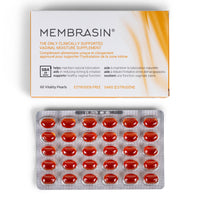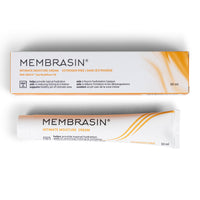Managing Those Dreaded Hot Flashes & Night Sweats!
If you heard much about menopause before it started, it was probably focused on the negatives like hot flashes and night sweats. The exciting and celebration-worthy components of menopause sadly don’t get as much press. The reality for many women is that menopause is a positive life transition that comes with a few drawbacks. Two of those drawbacks are hot flashes and night sweats. So, let’s talk about why they occur and what you can do to reduce their impact on your quality of life.
Hot Flashes
Hot flashes are temporary bouts of intense feelings of heat that can also be accompanied by sweating, a heightened pulse, reddened skin, anxiety, and chills once the hot flash subsides. Women who don’t experience hot flashes at some point during peri- or post-menopause are in the minority, as 85% of women report having them. Not only are hot flashes the most common symptom of menopause, but they can also be a part of your life for the long haul: the average amount of time a woman experiences hot flashes is seven years. On average, hot flashes last four minutes and can occur as rarely as once a week or as often as several times an hour. Since this symptom of menopause is so pervasive, can last for years, and shows up unexpectedly and frequently, it’s unquestionably worth learning some tips to help manage it.

Night Sweats
Night sweats aren’t strictly different from hot flashes; they’re just hot flashes that happen at night. However, sometimes night sweats are caused by conditions unrelated to menopause like idiopathic hyperhidrosis, infections, cancers, medications, hypoglycemia, and hormone disorders. So, if you’re experiencing night sweats and don’t think you are menopausal, be sure to schedule an appointment with your doctor.
How to Enjoy Menopause Anyway
Planning ahead can help you mitigate hot flashes and get back to enjoying menopause. Why suffer from the symptoms when you can make some simple lifestyle changes to help minimize their effects? There’s a lot to look forward to during menopause, including the statistics from a study that showed 82% of menopausal women feel as attractive as they were before, 80% feel a newfound sense of freedom, and 60% of women report feeling better than ever.
Wear layers so that you can remove clothing when a hot flash strikes. Limit caffeine, alcohol, and spicy foods, and avoid smoking cigarettes, as those sometimes exacerbate menopausal symptoms. Maintaining a healthy weight and incorporating calming movement or mindfulness practices like yoga or meditation can help, too. Set a low temperature for your bedroom at night to minimize night sweats. Keeping a portable fan in your purse doesn’t hurt, either.

For more severe hot flashes and night sweats, your doctor may prescribe hormone therapy or antidepressants that are effective at reducing these symptoms. Anti-seizure or blood pressure medications may also help reduce the impact of menopausal symptoms. If your symptoms concern you, make sure you talk to your doctor about them rather than assume they are normal.



